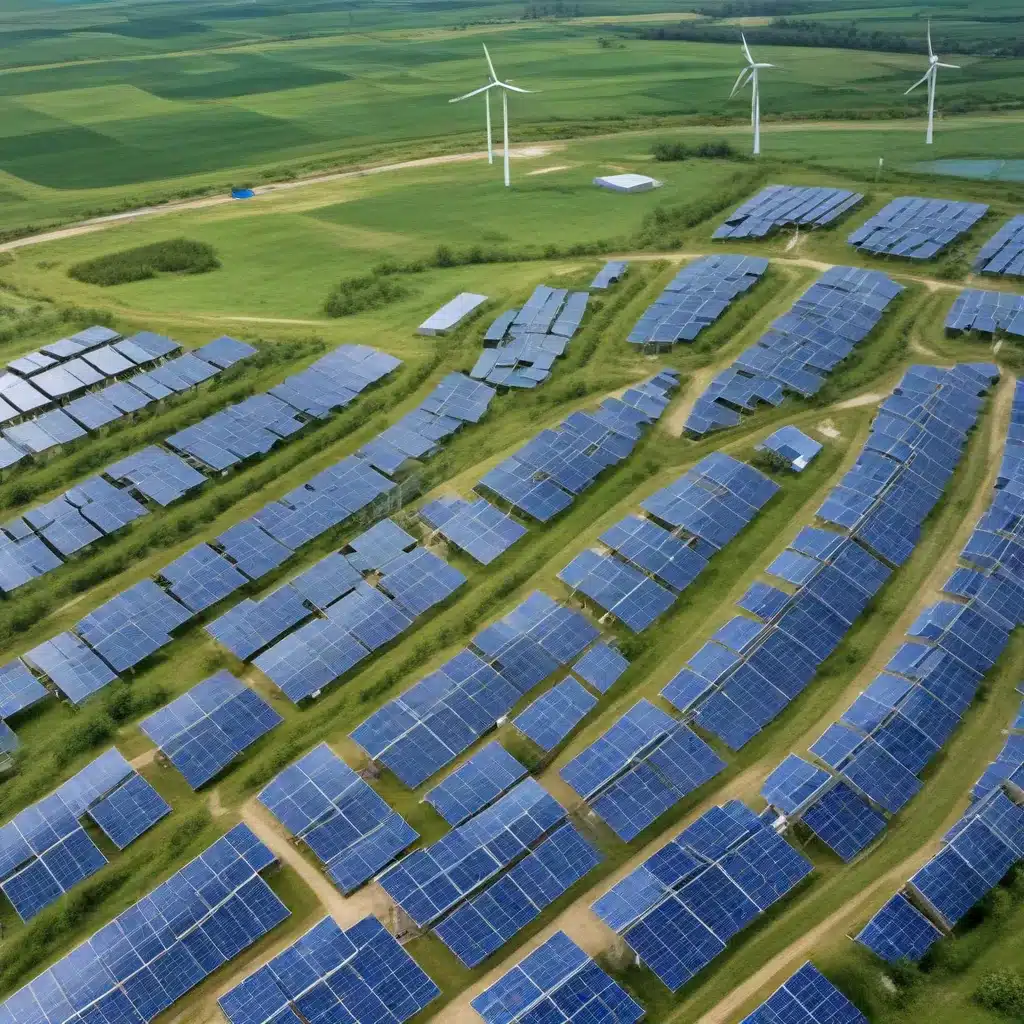
As Europe continues its ambitious transition towards a sustainable, low-carbon future, the convergence of renewable energy and the emerging hydrogen economy has become a focal point of innovation and opportunity. This dynamic interplay holds the promise of revolutionizing the way we produce, distribute, and utilize energy, ultimately propelling us closer to a greener, more resilient energy system.
The Hydrogen Economy
Hydrogen has long been touted as a clean, versatile energy carrier that can play a pivotal role in decarbonizing various sectors, from transportation to industrial processes. The hydrogen economy refers to the ecosystem of technologies, infrastructure, and policies that enable the large-scale production, storage, distribution, and utilization of hydrogen as a primary energy source.
Hydrogen Production
At the heart of the hydrogen economy lies the challenge of sustainable hydrogen production. Traditionally, hydrogen has been derived from fossil fuels, a process that releases significant amounts of greenhouse gases. However, the rise of renewable energy technologies has opened up new pathways for green hydrogen production, primarily through water electrolysis powered by solar, wind, or hydroelectric energy. This shift towards renewable-based hydrogen production is a crucial step in reducing the carbon footprint of the energy system.
Hydrogen Storage and Distribution
Effective storage and distribution of hydrogen are equally essential for the success of the hydrogen economy. Advancements in hydrogen storage technologies, such as high-pressure tanks, liquid hydrogen storage, and metal hydrides, have improved the feasibility of transporting and storing hydrogen. Similarly, the development of hydrogen pipelines and distribution networks is gaining momentum, enabling the seamless movement of hydrogen across regions and facilitating its integration with the broader energy infrastructure.
Hydrogen Applications
The versatility of hydrogen as an energy carrier is another driving force behind the hydrogen economy. Hydrogen can be utilized in a variety of applications, including fuel cells for transportation, industrial processes that require high-temperature heat, and power generation through combined heat and power (CHP) systems. The potential for hydrogen to serve as a grid balancing resource, helping to integrate variable renewable energy sources, further enhances its value proposition.
Renewable Energy Integration
The synergies between renewable energy and the hydrogen economy are multifaceted, offering opportunities to optimize the utilization of clean energy resources and achieve greater decarbonization.
Solar-Hydrogen Systems
The integration of solar photovoltaic (PV) technology with hydrogen production through water electrolysis is a prime example of these synergies. Solar-powered electrolysis can generate green hydrogen that can be stored and later used for power generation or transportation, effectively addressing the intermittent nature of solar energy.
Wind-Hydrogen Systems
Similarly, wind power can be combined with hydrogen production to create a complementary energy system. During periods of high wind availability, the excess electricity generated can be used to power electrolyzers, producing hydrogen for storage and subsequent use. This approach helps to mitigate the variability inherent in wind energy generation.
Hydropower-Hydrogen Systems
Hydroelectric power, a well-established renewable energy source in Europe, can also be integrated with hydrogen production. The stable and predictable nature of hydropower can be leveraged to drive electrolysis, generating a reliable supply of green hydrogen that can be used to support the broader energy system.
Economic Considerations
The economic viability of the hydrogen economy is a crucial factor in determining its widespread adoption and success.
Hydrogen Production Costs
One of the primary challenges is the current high cost of green hydrogen production compared to traditional hydrogen derived from fossil fuels. Continued technological advancements, economies of scale, and policy support will be necessary to drive down the production costs of renewable-based hydrogen, enabling it to compete with conventional energy sources.
Hydrogen Infrastructure Investments
Substantial investments in hydrogen infrastructure, including production facilities, storage systems, and distribution networks, are required to facilitate the large-scale deployment of hydrogen technologies. Mobilizing public-private partnerships and accessing climate finance mechanisms will be instrumental in securing the necessary funding for this enabling infrastructure.
Environmental Impact
The environmental benefits of integrating renewable energy and the hydrogen economy are significant, with the potential to contribute to Europe’s ambitious decarbonization goals.
Greenhouse Gas Emissions Reduction
By replacing fossil-fuel-based energy sources with renewable-powered hydrogen production, the energy system can achieve substantial reductions in greenhouse gas emissions. This shift towards a more sustainable energy mix is essential for mitigating the impacts of climate change and fulfilling the targets set forth in the European Future Energy Forum.
Resource Sustainability
The reliance on abundant renewable resources, such as solar, wind, and hydropower, rather than finite fossil fuels, promotes the long-term sustainability of the energy system. This transition aligns with the principles of a circular economy, where resources are utilized efficiently and waste is minimized.
Technological Advancements
Ongoing technological innovations are driving the evolution of the hydrogen economy and its integration with renewable energy sources.
Fuel Cell Technologies
Advancements in fuel cell technologies, which convert hydrogen into electricity, have significantly improved the efficiency and cost-effectiveness of hydrogen-powered applications, particularly in the transportation and stationary power sectors.
Electrolyzer Innovations
Similarly, the development of more advanced and cost-competitive electrolyzers, the devices used to produce hydrogen through water splitting, is crucial for scaling up green hydrogen production and making it a viable alternative to conventional energy sources.
Energy Storage Solutions
Innovative energy storage solutions, such as power-to-gas systems that can convert excess renewable electricity into hydrogen, are enhancing the flexibility and resilience of the energy system, enabling the seamless integration of renewable energy and the hydrogen economy.
As Europe continues to lead the global transition towards a sustainable energy future, the convergence of renewable energy and the hydrogen economy holds immense promise. By harnessing the synergies between these two transformative forces, the continent can unlock a new era of clean, resilient, and economically viable energy systems that will shape the path towards a carbon-neutral future.







